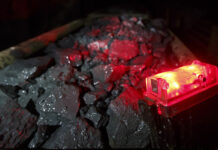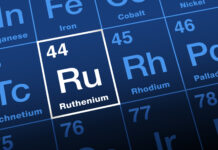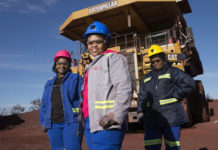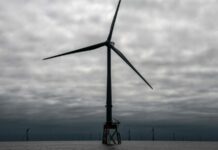
[miningmx.com] — NOT since the demise of Amcoal (into Anglo American) and Ingwe Coal (BHP Billiton) in the late Nineties has Johannesburg offered so many pure play energy stocks for investors. Resource Generation, Coal of Africa, Keaton Energy, Optimum Coal and Sentula Mining are all going to become interesting prospects, although to be honest it’s only Optimum Coal, of the minors, that’s in a position to capitalise on today’s chronic coking and thermal coal shortages.
The surge in coal prices is primarily being enjoyed by the diversified miners such as Anglo American and BHP Billiton; even then, share price improvements are probably driven by expectations both will mirror Rio Tinto’s strong fourth quarter operational performance in which iron ore prices hit record levels.
They, like Exxaro Resources, prove that scale is important in the bulk mining industry. At the time of writing, Exxaro was close to eclipsing its 52-week trading high of some R156.85/share. Asked why Keaton Energy’s share price hadn’t budged since last year, its MD, Paul Miller, conceded the company’s too small and too developmental to warrant it yet.
One suspects that’s the rationale behind the cautionary under which Keaton’s shares are trading today. The company needs to be developing coal production and cash flow on several fronts, not in piecemeal fashion as one would expect of a coal junior mining firm with limited balance sheet power.
One of the major disappointments in the coal sector, however, must be Sentula Mining (previously Scharrig Mining), which several years ago attracted Sam Jonah as its chairman amid plans to diversify from earthmoving, contract business, into coal production of its own. Jonah has since left the company which has been awash with internal problems involving fraud and corruption.
Robin Berry, previously of Anglo American, has been installed as its CEO but he still doesn’t seem to have the wind at his back. Management time has been unduly absorbed with balance sheet problems, and the staff related fraud. Unsurprisingly, shares in the company eased down again this week even as coal prices moved up. And while Sentula is still an earthmoving business and is locked into contracts, it’s case hasn’t been helped by another capital raising with some R740m in senior debt.
Didn’t Sentula tap shareholders for R500m in December, 2009, and then sell its 49% stake in Koornfontein mine to Optimum Coal two months after that?
The irony of ironies is that Optimum Coal issued a trading statement on Monday in which it said full-year share earnings would be a fifth higher than expected excluding cash flow from Koornfontein. (It can’t book its profits since the colliery was still owned, partly, by Sentula during the period under review). For the record, Koornfontein produced 1.5 million tonnes of coal of which about 900,000 tonnes was for the lucrative export market and the rest for Eskom. How Sentula could use this cash flow in future.
Deon Louw, financial director for Sentula, comments that this last recapitalisation is “the final step” in a long process to get the firm’s capital structure right. As for selling Koornfontein, Sentula bought it for only R150m so the company has booked a decent profit. Louw calls it an add to shareholder value although I’m sure Sentula would have preferred owning the cash flow first.
As for the global supply deficit in coal, Eskom is stockpiling like crazy against the risk of power reserves down to 2008 lows. One of Eskom’s supply side management plans is to buy more and higher quality coal to feed into rain affected power stations. At Richards Bay Coal Terminal, meanwhile, stockpiles totalled 1.66 million tonnes end-2010 which is the lowest level since December 2007. Restocking is being hindered by the Transnet derailments recently.











